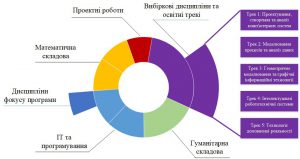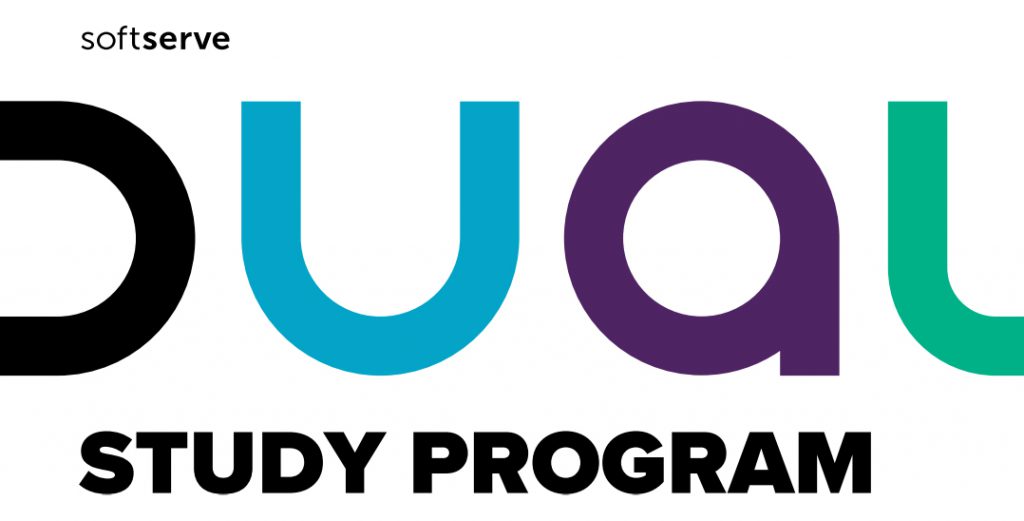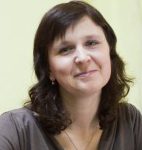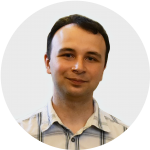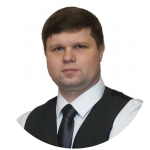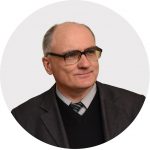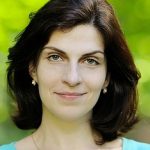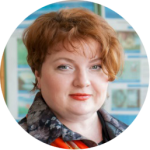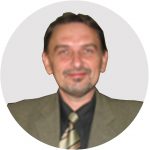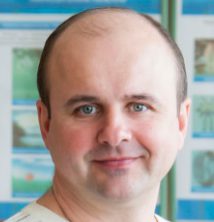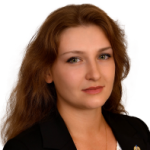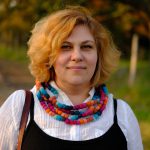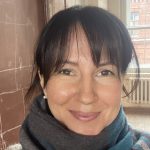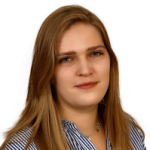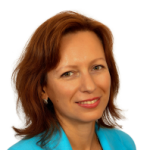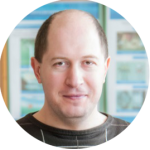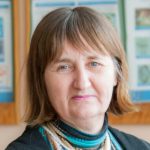122
Computer
Science
Computer Science. Modeling, design and computer graphics
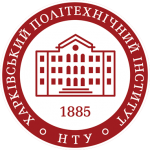
Навчально-науковий інженерно-фізичний інститут
122 комп'ютерні науки
Комп’ютерні науки. Моделювання, проектування та комп’ютерна графіка
«Комп’ютерні науки, це науки про обчислення, автоматизацію та інформацію,
що охоплюють теоретичні дисципліни, такі як алгоритми, теорія обчислень і теорія інформації, та практичні дисципліни, що включають розробку та впровадження апаратного та програмного забезпечення». (WikipediA)“Computer science is the study of computation, automation, and information.
Spans theoretical disciplines, such as algorithms, theory of computation, and information theory, and practical disciplines including the design and implementation of hardware and software.”
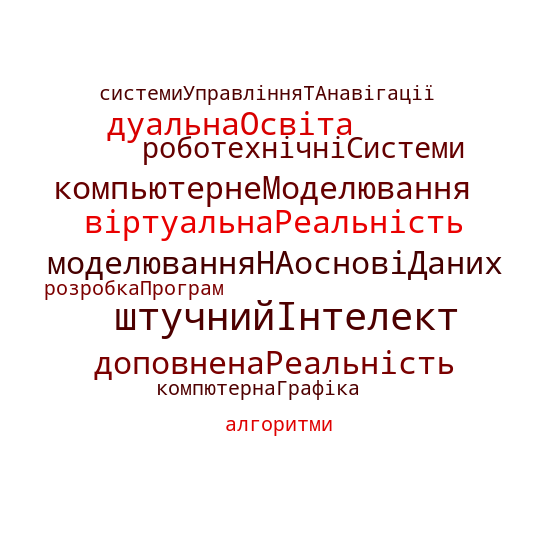
Qualification levels
Bachelor
of Computer Science
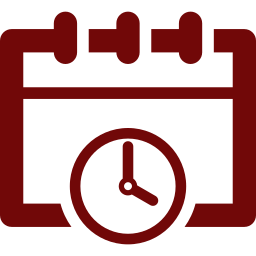
Training period
4 years / 240 ECTS credits

The form of study
full-time
correspondence
Бакалавр
з комп'ютерних наук

Термін навчання
3 роки 10 місяців / 240 кредитів ЄКТС

Форма навчання
Денна

Бюджетні місця
у 2020 році

Вартість контрактного навчання
для громадян України 26 000 грн

Навчальний план.
characteristics of the educational program
The main focus of the educational program “Computer science. Modeling, design and computer graphics” is the study of algorithmic solutions and mathematical methods that are the basis for the development of intelligent software systems, as well as solving applied problems of computer modeling and analysis data in information and engineering systems using computer and artificial intelligence approaches.
Features of the program
ICM uses the Project form in educational processes. Starting from the 3rd year, there are mandatory team project works - for the formation of team interaction on tasks proposed by employers;
Active involvement of employers to teach selective courses from current technological stacks - we invite various specialists from different companies to jointly teach the most modern technologies;
The institute has a CISCO academy certified laboratory;
A wide range of department connections with German universities: organization of practice, included training (academic mobility, i.e. one semester of study at a German university), Euler scholarships for several best 5th-year students annually;
A unique opportunity for students to choose a dual form of organization of the educational process.
As part of the close cooperation of ICM with the SoftServe company, we agreed on the structure of the educational process, which ensures continuous interaction in 3 main steps:
- execution of team project works based on real cases from the company and in close mentorship with practicing specialists;
- students are offered selective technical courses, which will be taught by ICM teachers together with SoftServe specialists on current specialized technological areas;
- synchronization of the practical component of the disciplines in the IT technology stack with the implementation of working business projects in SoftServe (actually combining internship and work in the company with training).
This approach ensures a high level of practical skills, relevance of the stack of technological disciplines and a high level of SoftSkills for our graduates.
After studying in the 1st year, there is a choice of the following educational trajectories:
Docent TATARINOVA OKSANA (guarantor of the bachelor’s educational program) Candidate of technical sciences teaches courses: Discrete Mathematics, Theory of Algorithms, Mathematical Logic |
Docent VODKA OLEKSII (guarantor of the master’s educational program) Candidate of technical sciences teaches courses: Object-oriented programming, Data-based modeling and reverse engineering, Data visualization, Mathematical methods of artificial intelligence theory, Distributed computing | |
Professor LARIN OLEKSII Doctor of Engineering teaches courses: Theory of probability and mathematical statistics, Machine learning, Modeling of dynamic processes, Analysis of random processes and signals |
BRESLAVSKYI DMYTRO Doctor of Engineering teaches courses: Programming, Special sections of computational methods | |
VIAZOVYCHENKO YULIIA Candidate of technical sciences teaches courses: Mathematical logic and data structures, Neural networks, Optimization methods | IVANCHENKO KSENIIA Candidate of technical sciences teaches courses: Programming, Object-oriented programming, Methodologies for creating software products, Testing, Modeling and data-based reverse engineering | |
Professor SHOMAN OLHA Doctor of Engineering teaches the course: Geometric modeling |
Professor USPENSKYI VALERII Doctor of Engineering teaches courses: System analysis, Mathematical methods of artificial intelligence | |
MATIUSHENKO MYKOLA Candidate of technical sciences teaches the course: Discrete Mathematics | SHAPOVALOVA MARIIA Candidate of technical sciences teaches the course: Program development technologies | |
CHYSTILINA HANNA Candidate of technical sciences teaches courses: Mathematical logic, Theory of algorithms and data structures | VORONTSOVA DARIA Candidate of technical sciences teaches the course: Animation and rendering technologies | |
POTOPALSKA KSENIIA Candidate of technical sciences teaches courses: Statistics on Phython, Machine learning, 3D drawing | ROZOVA LIUMYLA Candidate of technical sciences teaches courses: Object-oriented programming, Databases | |
DASHKEVYCH ANDRII Candidate of technical sciences teaches courses: GUI programming, Data mining | Professor MARTYNENKO HENNADII Doctor of Engineering teaches courses: Databases, Data mining | |
SIMONOVA OLHA Candidate of technical sciences teaches the course: Programming |
MISIURA SERHII Candidate of technical sciences teaches the course: Web technologies, Devops, Program development technologies |
.
Educational trajectory– Design, creation and analysis of computer systems
This profiled package of disciplines is designed to train specialists who will generate new ideas and create new software projects, including PROGRAMMING. One of the main problems of the modern IT industry is the lack of new ideas, designed accordingly – according to the requirements of descriptions of startups, software complexes, scenarios of computer games, web portals and applications, etc. Understanding the software development process is an important component of this discipline unit as it helps students acquire the skills and techniques to work effectively on software projects.
Основні навчальні дисципліни
Мови програмування С++, Java, Python та ін.
Алгоритми та структури даних
Бази даних
Проектування програмних систем
Тестування програмних систем
Теорія управління
Методи штучного інтелекту
Комп'ютерні мережі
Internet-технології
Програмування мобільних пристроїв
Методи оптимізації
Дослідження операцій
Паралельне та розподілене програмування
Системний аналіз та теорія прийняття рішень
Educational trajectory – Process modeling, data processing and analysis
The training is aimed at forming students’ knowledge and skills in creating computational models and algorithms for computer simulation, data processing and analysis, and data visualization. Attention is paid to the synergy of training in programming, modeling and computational mathematics. Students gain knowledge in the field of engineering modeling, application of automated design systems. The trajectory’s focus is on the intersection of computer simulations of real processes, data analysis methods, and artificial intelligence in modeling tasks.
Основні навчальні дисципліни
Мови програмування С++, Java, Python та ін.
Математична статистика
Організація баз даних
Програмне забезпечення математичного моделювання
Технології програмування
Чисельні методи
Методи штучного інтелекту
Комп'ютерні мережі
Internet-технології
Методи оптимізації
Моделювання об’єктів і процесів в комп’ютерних системах
Динамічні дискретні системи
Паралельне та розподілене програмування
Метод скінченних елементів
Educational trajectory – Geometric modeling and graphic information technologies
This profiled package of disciplines is aimed at combining three directions that mutually complement and enrich each other: development of geometric models of objects, phenomena and processes, visualization, design activity.
Основи графічної композиції у віртуальному середовищі
Комп’ютерна графіка та веб-дизайн
Геометричне моделювання в конструюванні технічних об'єктів
Основи створення графічних додатків
Інтернет-технології комп’ютерної графіки та анімації
Графіка в мобільних пристроях
Основи скриптових мов програмування
Технології анімації та рендерингу
Educational trajectory– Intelligent and robotic systems
This profiled package of disciplines is designed to train specialists who will learn to develop and use computer systems that apply artificial intelligence, neural networks and machine learning. Students will be able to create intelligent models capable of pattern recognition, language processing and decision-making based on training data. These competencies will open wide perspectives for students to implement innovative solutions in various fields, including medicine, finance, automation and many others.
In addition, within the framework of this package of disciplines, students will gain knowledge about robotics, in particular the development and programming of robots and autonomous systems. They will be introduced to basic robotics concepts such as sensing, motion control, navigation and interaction with the environment. Students will be able to develop software for robots and unmanned aerial vehicles, as well as learn the principles of autonomous functioning and solving tasks in real time.
Основні навчальні дисципліни
Методи штучного інтелекту
Машинне навчання
Методи оптимізації
Дослідження операцій
Мови програмування С++, Java, Python та ін.
Бази даних
Теорія управління
Механіка робототехнічних систем
Паралельне та розподілене програмування
Internet-технології
Програмування мобільних пристроїв
Сучасні комп'ютерні технології
Educational trajectory – Technologies of augmented reality
This profiled package of disciplines is designed to train specialists who will learn to develop and use computer systems with artificial intelligence components, artificial neural networks for solving various problems, perform image processing and recognition, use 3D animation technologies, perform AR & VR simulations, develop mobile AR apps and gaming apps.
Основні навчальні дисципліни
Graduates' suitability for employment and further education
Senior students and our graduates work in the largest Ukrainian and global companies. Graduates who found themselves in the field of information technologies work as programmers (C++, C#, Java, PHP), front-end and back-end developers, database administrators, and testers. Those who find themselves in engineering work as researchers and engineers in companies that design and develop new equipment, machinery and machinery.
Our graduates work at enterprises of various forms of ownership, in design and research organizations, advertising and design firms, programmers of computer graphics systems, developers of WEB sites and Internet applications.
Our graduates do internships in their senior years and work after graduation: in IT companies such as: “Intetics”, “DataArt”, “Nix Solutions”, “Qualium Systems”, “CHI Software”, “Global logic”, “EPAM Systems”, “Miratech” and many others; research divisions of companies and enterprises, such as the joint Ukrainian-American enterprise WESTRON, Vertical, NVP KHARTRON-ARKOS and others.
Learn more about the companies and enterprises that offer employment for students and graduates of our institute, as well as get acquainted with the requirements, duties and skills of candidates for current vacancies, possibly by following this link.
A student who has completed training under this educational program and received a bachelor’s degree can continue his studies at universities in Ukraine and abroad to obtain a master’s degree in the field of knowledge 12 “Information technologies” or related fields.
What do our graduates say?
Are you interested in the opinion of those who have already received an education in the specialty of Computer Science? We really appreciate our graduates and their feedback about our work. Read their stories below to get a more complete picture of their studies, subsequent employment, and how the knowledge and skills acquired at university have helped them in life and work. Probably, the reviews of our graduates will inspire you and help you choose a specialty.

VLADYSLAV TSAROV (graduated 2018)
G5 Brightgrove (Kharkiv), React-Native developer
The training program provides basic knowledge of all currently relevant programming languages, emphasizing the development of logical thinking. Perhaps it is necessary to add even more practical classes and focus on current technologies. But in general, it is already present. All teachers have a positive attitude and go to meet the student in any questions and support the initiative, which is quite important. The entire educational process is both positive and informative. I can advise students to gain knowledge while they are being given to you, and keep an eye on current technologies!

OLEH BATIUK (graduated 2017)
G5 Entertainment (Kharkiv), DevOps
I would like to note the high qualification of teachers and the individual approach to students in education. When I studied at the university, I was not yet sure of the specific specialization in which I wanted to work. Therefore, he learned everything, but little by little. At work, I needed the ability to write code, general knowledge and understanding of programming languages, which I acquired during my studies. I believe that a student needs to decide on the direction in which he wants to work (Developer, Qa, DevOps, PM manager) no later than the 3rd year and rapidly develop in it!

VOLODYMYR ANICHKIN (graduated 2019)
Instyle javaDev
All the knowledge I received at the University came in handy at work. I would reduce the number of non-core subjects and add more practice on real projects. In IT, you always need to learn, especially to practice working in a team. I advise you not to stop at your development, there is always new information that still needs to be learned.

ANDRII MARCHENKO (graduated 2014)
Your startup (IoT)
Most of the teachers of the institute know how to present knowledge correctly. After graduating from the university, the skills of modeling in Solidworks, understanding the principles of mechanics and electronics, as well as knowledge of theormech / resistance came in handy in my work. I would like to increase the number of subjects related to modeling and calculations on a PC, add subjects related to IoT technologies. I recommend students to pay more attention to studies. Many things that seem uninteresting and unnecessary turn out to be very useful in the future. At the same time, have fun, spend your student years and enjoy a carefree life.
Graduates' satisfaction with education and training in the specialty
68,5%
★★★★★
21%
★★★★
10,5%
★★★
0%
★★
0%
★
Overall satisfaction with learning
68,5% (13)
42,1%
★★★★★
47,4%
★★★★
10,5%
★★★
0%
★★
0%
★
Relevance of the specialty
68,5% (13)
42,1%
★★★★★
47,4%
★★★★
10,5%
★★★
0%
★★
0%
★
Quality of training in the specialty
73,7%
★★★★★
21%
★★★★
5.3%
★★★
0%
★★
0%
★
Objectivity of knowledge assessment
Актуальність спеціальності
★★★★★ 42,1%
★★★★ 47,4%
★★★ 10,5%
★★ 0%
★ 0%
How quickly did our graduates get a job after graduating?
84% - Even during the diploma project
11% - Almost immediately
5% - During the year
0% - During the first three years
0% - It took more than three years
If you are our graduate, leave your feedback, it is important for us to hear your opinion. Please fill out, this survey form.
We are on social networks:
If you have any questions, contact us in any way convenient for you and we will definitely help you!
+38 (057) 70 76 058, +38 (057) 70 76 085,
office.infiz@khpi.edu.ua
Kharkiv, st. Kirpychova 2, NTU “KhPI”, educational building 2, floor 3, classroom 313
